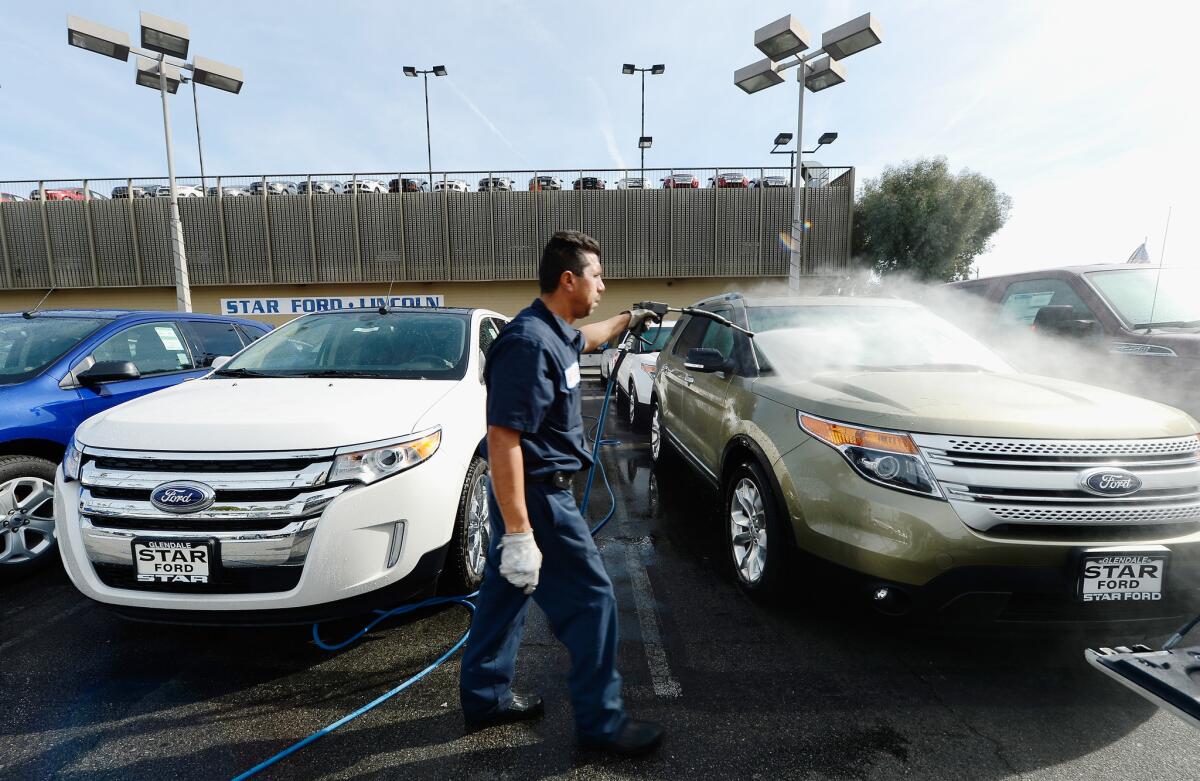SUVs and crossovers overtake sedans as most popular U.S. vehicles

- Share via
The SUV is the new family sedan.
For the first time, SUVs and crossovers have replaced sedans as the most popular style of vehicle in the U.S., according to new vehicle registrations collected by IHS Automotive for the first five months of 2014.
“This is a pretty major shift,” said Tom Libby, an analyst with IHS. “We assume the sedan is the foundation of vehicles in the U.S., and this is the first time they’re not.”
Through May of this year, 36.5% of all new vehicles registered have been sport-utility vehicles or crossovers, IHS found. That compares to 35.4% for small and large sedans combined.
In 2013, crossovers and SUVs grabbed 33.9% of new registrations, while sedans accounted for 36.6%.
Crossovers and SUVs are booming for several reasons. They offer a combination of desired features that other vehicle types can’t match: higher seating position and ground clearance, a softer ride, interior space for both people and cargo, towing capacity, and all-wheel drive.
Their recent surge in popularity is also due to a flood of innovative new styles and models that have come to market recently, luring people away from their traditional choices, IHS said.
Sedans aren’t the only body style feeling the sting of SUVs’ popularity. Hatchbacks, pickup trucks, coupes, minivans, and convertibles have all lost market share in the last five years. Of those, hatchbacks and pickups have slipped the most, IHS said.
This trend is expected to continue for at least the next three years, based on anticipated new models and a predicted decline in gas prices.
But not everything lasts forever.
“Longer term, concerns over fuel efficiency standards and rising oil prices are expected to pressure light truck sales,” warned Chris Hopson, a forecaster at IHS.







